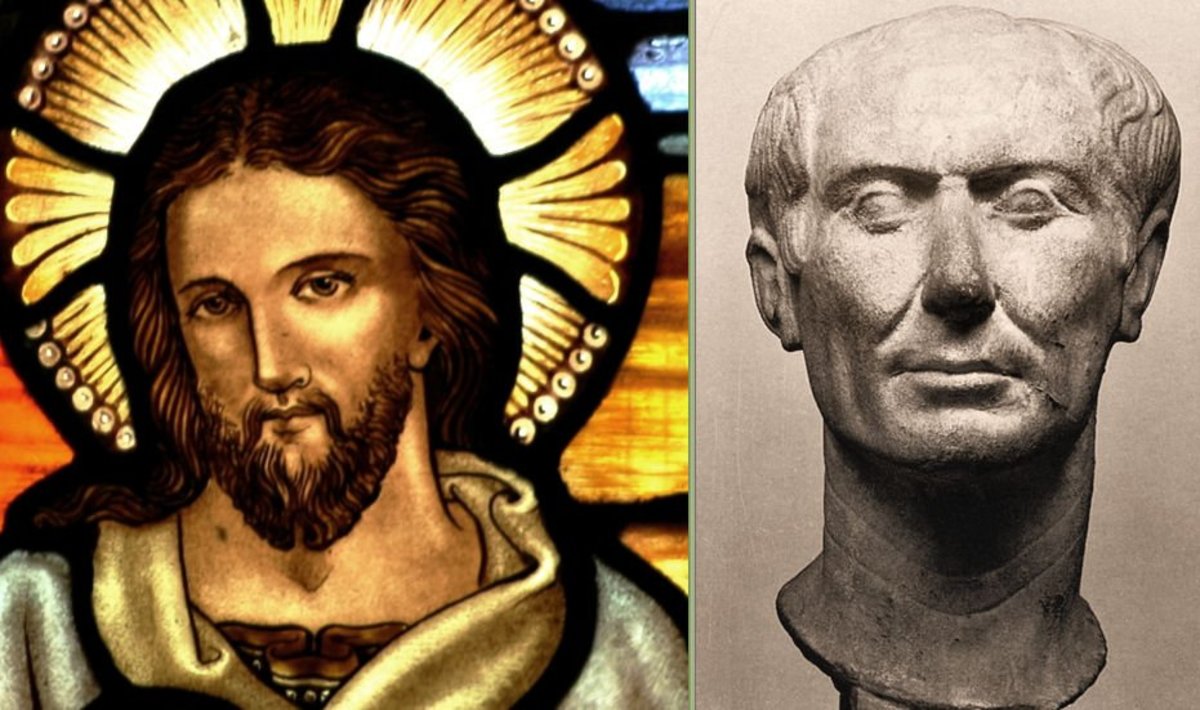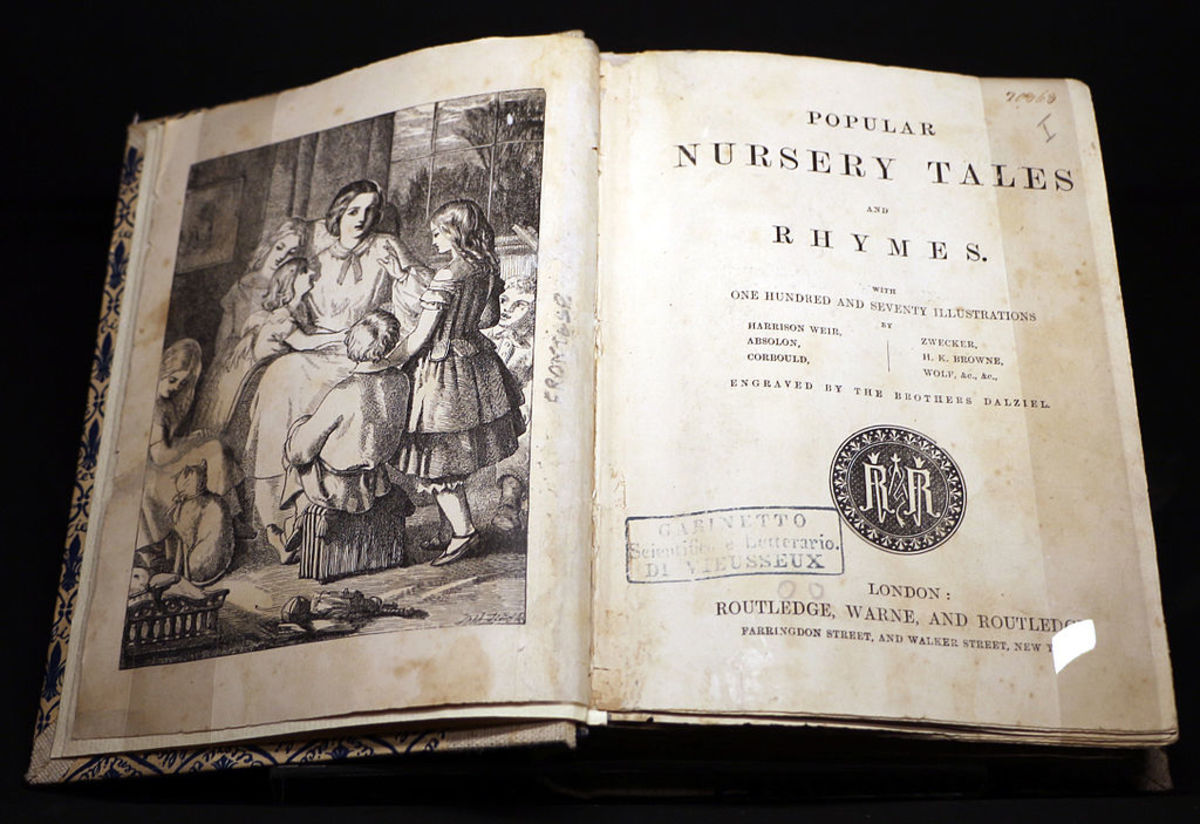The Theologian's Disconnect with Actual History

The comments from my last hub are the reason for this one. You can catch up here. But for a quick review, I wrote about the historicity of the bible, or the lack thereof. I stated that the bible was not, in fact, a historical document that could be relied on. Instead, I suggested that the bible was a hagiography, which is any writings on the life of holy people. While this document could be used as a primary source, depending on what it was that you were researching, it was not the best source for actual history of the time since the main purpose of the bible was to relate the history of the Christian god, a mythological figure, and his son, Jesus. Therefore, historians should proceed with caution when dealing with the bible.
There are historians, however, theologians, to be exact, that refer to the bible as a legitimate historical document and claim that the events related in the bible are proof in and of themselves that they actually happened. Why else would anyone want to write about events unless they actually happened? Well, I can think of several. Legitimacy to rule or claim ownership over land is just one. And, the fact that this technique has been used frequently throughout history in other cultures leaves me wondering what makes the bible so special, so unique, that supposed students of history with an obligation to be forthcoming and honest, will ignore all other inaccurate historical claims and hold the bible up as solid proof of actual events. I am baffled.
I have, in the past, written comparisons between the "history" in the bible and "histories" related in other historical works to demonstrate that the bible is not, in fact, unique in its claims. There are countless historical documents that refer to supernatural events as "history." These documents are called hagiographies. They can contain very valuable historical information, but they are a mix of myth and history, so the trick is to be able to, and be honest enough, to keep the two separate. This can be harder for some than for others, especially when the historian in question has these pesky personal beliefs that keep getting in the way of honest, ethical historical scholarship.
The Bible is not Unique
Far from it. I have written in the past, articles demonstrating this, but for those that need it clarified even more, I will break it down in greater detail. I propose, that if the bible is to be taken as an actual historical document, and that the events related within it are to be regarded as historical fact, so too, should other historical works, simply on the basis that they were written and a great number of references to those written events exist. One example stands out in my mind. That is the supposed life and history of Prince Shotoku of Japan.

Prince Shotoku
The best source for the life of Prince Shotoku is the Nihonshoki, a Japanese hagiography from the 8th century. One would think that a Prince with a lineage and someone who has been given credit for promulgating the Seventeen Article Constitution, an actual code of laws in Medieval Japan, would not be in danger of being classified as only a myth. When there is a great lack of evidence for his existence, however, outside of a hagiography, that is exactly the case.
Within the Nihonshoki this Prince is credited for great and heroic feats. It is claimed that he was the author of a very upsetting letter to the Chinese Sui Emperor, Yangdi, that read:
From the sovereign of the land of the rising sun, to the sovereign of the land of the setting sun...
How interesting, indeed, it would be if he really did write this letter! That might be motivation enough for any historian to work an entire lifetime to try and prove his existence. But the fact remains that these are all allegations, and historians must make that clarification when referring to Prince Shotoku or any of his exploits. The fact is that there is just not enough evidence supporting his existence outside of the Nihonshoki, a hagiography, and solid evidence is necessary to be able to cross reference any of the events that it claims. One can still cite him and the Nihonshoki as a primary source, but an honest historian must clarify that these are not historically factual and require further confirmation in the way of evidence that just has not been found as of yet.
Why is that so hard to do when dealing with the bible or Jesus? Is it that hard to simply acknowledge that there is just not enough evidence, outside of the bible, a hagiography, to determine whether or not Jesus actually existed? I find it highly arrogant for any historian to make claims based on unproven events or figures, under any circumstances. This is highly indicative of that historian's beliefs crossing the line of truly ethical scholarship.

Laozi
Here is another high profile figure in history that, while very important to the history of China, just doesn't have enough evidence outside of unreliable claims to justify his existence as a historical fact. Now here is a figure who has an entire philosophy attributed to him. He is also the alleged author of the Tao Te Ching. He is even mentioned in a very reputable historical text written by Sima Qian, a true historian, as having been a contemporary of Confucius. Why, then is there any doubt? For the simple fact that Sima Qian was writing about a person that may have existed 400 years before him, and he was only going by what was previously written about him.
The truth is that historians today highly contend Laozi's existence, and think that rather than this having been an actual figure in history, he was a combination of historical figures. Sadly, his existence is unprovable. This doesn't mean that we as historians aren't allowed to reference him as a source, depending on what it is that we are talking about. As a historian, I would not cite him as a source on history, but as a source on the philosophy that he has inspired. That would be an ethical way to refer to him. Similarly, when citing Jesus as a historical reference, a historian only damages his credibility unless he is specifying that Jesus' existence has not been unequivocally proven.
More on Buddhism
- The Acceptance of Buddhism into China
Buddhism wasn't always the religion of choice in China. This article gives a brief overview of it's introduction into Chinese society. - Japanese Hongaku
Japanese Buddhism is unique and different from other Buddhisms and Hongaku is one reason why that is. - Shinto and the Persecution of Buddhism in Meiji Japan
Shinto was not even thought of as a religion until it became necessary in the late 19th century. This article explains how Buddhist persecution played a big role in that. - The Different Japanese Buddhas
A summary and explanation of the six most popular Buddhas of Japan and their origins.
Siddhartha Gautama, the Buddha
Here is another figure in history whose claims are highly disputed among historians. Even if he did exist, the claim that this man became the Buddha has absolutely zero evidence. How is this any different than the claim that a Jewish carpenter was resurrected after being crucified? But according to several hagiographies, the Buddha was a human who lived sometime in the 5th or 6th century. These hagiographies include Buddhacarita, Lalitavistara Sutra, Mahavastu, and Nidanakatha. Each one offers conflicting evidence, much like each book in the New Testament offers conflicting evidence on the same event or person. What is a historian to conclude, then? Well, an honest and ethical historian, while valuing the cultural details in the bible, will regard the supposed historical events with caution. One can appreciate the teachings of Jesus without having to assert that he was in fact a real historical figure.

The Theologian's Downfall
Unfortunately, a theologian will refer to disputed events such as Jesus' resurrection as an actual event in history. This is sad and beyond unethical since, there is no reliable evidence for this event outside of the bible. That very same theologian will, however, dispute the claims of historical figures like Laozi and the Buddha, simply because they are founders of religions that offer competition to Christianity. How ethical is that? Shouldn't doubt be cast on all dubious historical figures and their claims?
As I stated before, I am baffled. I have to question the true intentions of one claiming to be a historian who is willing to breach an ethical code of honor among historians. When approaching history, one's main purpose should be to uncover the truth, not to perpetuate a lie. Quite frankly, I am disgusted by theologians who spend their life attaining a degree that allows their "findings" to be infallible, knowing full well that others will be depending upon their research. So, in conclusion, I leave you with a question that every historian and theologian should ask themselves: What's in it for you? If the answer to that is merely some justification for your personal beliefs, you should consider changing majors.
More on the Dubious Bible
- Slavery in the Bible: No, it's not Voluntary and it Certainly is not Indentured Servitude
There is no end to justifications for slavery in the bible from Christians and Apologists. This article will put an end to that silly notion once and for all. - The (Im)Moral Christian
Modern Christianity is a modern invention. Although Christians tend to cling to an ancient book, quite possibly the most immoral book ever conceived,they don't practice what it dictates, but they do defend it. This is a paradox. - Genocide in the Bible: When has it Ever Been Okay?
Like slavery, genocide is another hot topic in the bible that Christians rush to defend. This article will take a closer look at genocide and the Apologists' excuses for it. - The Bible: A Solid Foundation for Atheistic Belief
The bible is far from a moral guide. If anything, it is a guide on how not to live your life. - The Brutal Honesty Christians are Deathly Afraid of
Christians often cite their faith as the biggest reason for believing in god, but how honest is that? And how respectable is it to tout faith in something that defies all reason and logic? - Why are You a Christian?
Christians might be able to rattle off any number of reasons for why they are a Christian, but the fact is that 99% of the time they are a Christian merely because of logistics. - The Bible is not a Historical Text, it is a Hagiography
Christians are always claiming that the bible is some sort of historically accurate text. It is not historically accurate, in fact it is far from it.







